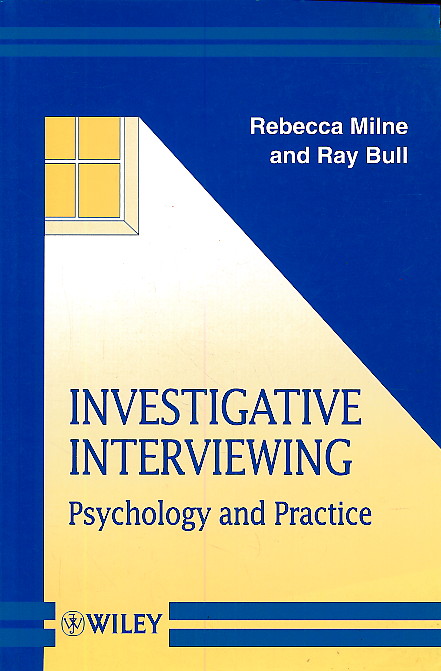Investigative Interviewing : Psychology and Practice
€15,00
Nema na zalihi
| Težina | 354 g |
|---|---|
| Format | 15 × 23 cm |
| Autor | |
| Izdavač | |
| Mjesto izdanja | Chichester |
| Godina | 2004 |
| Broj stranica | 223 |
| Uvez | Meki |
| Stanje knjige | Vrlo dobro |
Well-informed and skilled interviewing is a key factor in dealingwith suspects, victims and witnesses. Experienced police andinvestigators know this from their own practice, and there is now asubstantial body of research and theory in psychology whichsupports this practice and can guide both training and thedevelopment of investigative work. The purpose of this book is toprovide a concise and clearly written guide to the psychologicalconcepts and research-based knowledge that can support and guideinvestigative interviewing. It deals in particular with: good basic practice and methods for investigativeinterviewing how to deal with false confessions and unreliable or incompletewitness information the special problems of interviewing children and othervulnerable people the process of interviewing suspects, victims, witnesses,complainants and colleagues This book will be of interest and value to a wide range ofprofessionals involved in training and practice in the police orother agencies, as well as social workers,lawyers, psychologistsand psychiatrists involved in forensic work. The strength of thisbook lies in its relevance for both practice and research ininvestigative interviewing, not only in Britain butinternationally. Based on psychological theory and research, itprovides practitioners with a wealth of information and specificguidelines to help improve their interviewing skills. Researchersare challenged to address some of the, as yet, unansweredquestions. Janet Jackson, Netherlands Institute for the Study ofCriminality and Law Enforcement, Leiden, The Netherlands This bookis published in the Wiley Series in the Psychology of Crime,Policing and Law Series Editors: professor Professor Graham DaviesUniversity of Leicester, UK, and Professor Ray Bull University ofPortsmouth, UK
